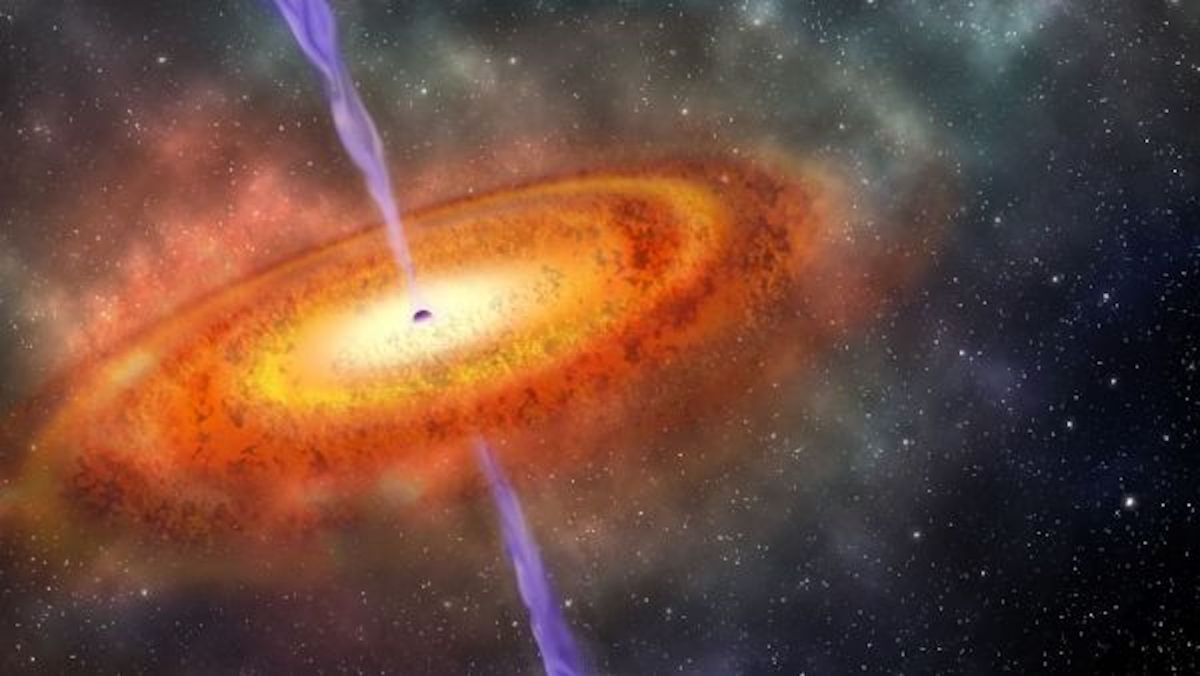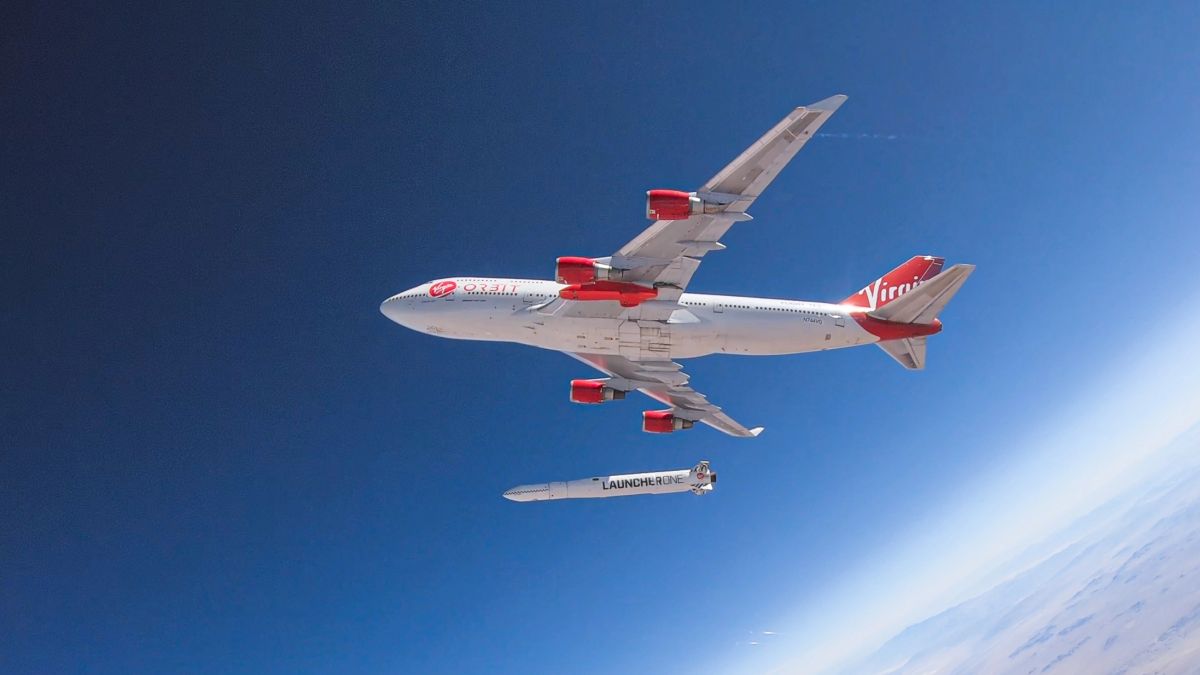A “soup” of molecules in a distant star-forming cloud contains compounds that are considered the essential building blocks for life, astronomers have found. These molecules can contribute to the construction of amino-acids, which themselves form the basis of genetic material and are believed to have been essential in the development of the first microorganisms on Earth. The prebiotic molecules were found in a star cluster within the Perseus Molecular Cloud called IC348. The stars in the cluster are estimated to be very young, between 2 and 3 million years old.…
Read MoreMonth: April 2023
Artemis II Crew Revealed
Canadian Space Agency astronaut Jeremy Hansen (from left) and NASA astronauts Victor Glover, Reid Wiseman, and Christina Koch greet the crowd at Ellington Field near NASA’s Johnson Space Center on Monday, April 3, 2023.
Read MoreStephen Hawking’s famous black hole paradox may finally have a solution
One of physicist Stephen Hawking’s most famous paradoxes may finally be solved: Black holes may in fact hang onto information about the massive stars that created them, new research indicates. This information may lurk in the radiation around black holes — colloquially known as “quantum hair” — and could, in theory, be retrieved to retell the origins of those black holes, the research suggests. These findings may finally resolve a thorny problem that Hawking was working on in his last years. Related: The Theory of Everything: Searching for the universal…
Read MoreVirgin Orbit files for bankruptcy after funding efforts fail
Virgin Orbit filed for bankruptcy on Monday (April 3), a move that comes shortly after the satellite launch company failed to secure two financing deals and furloughed most of its staff. The California-based company has started the process for a Chapter 11 bankruptcy, which is commonly known as “reorganization bankruptcy” and allows the company to continue basic operations while it looks for a buyer. Virgin Investments Limited, which is also part of billionaire Richard Branson‘s Virgin Group and owns 75% of Virgin Orbit, will provide $31.6 million in support to…
Read MoreRare blood-red arc of light shines in the Scandinavian sky. What is it?
A bright red streak of light appeared in the sky above parts of Scandinavia last week after a surprise solar storm smashed into Earth and triggered stunning auroras across the planet. But the bright red band was not an aurora — it was something much rarer. The streak, which appeared as a river of hazy red light that stretched all the way across the night sky, was most prominently visible above Denmark. Astrophotographer Ruslan Merzlyakov (opens in new tab) snapped a spectacular shot (opens in new tab) of the peculiar…
Read MoreNASA TV Coverage Set for Crew to Move Soyuz Space Station Location
NASA will provide live coverage as three crew members aboard the International Space Station take a short trip inside the Soyuz MS-23 beginning at 4:15 a.m. EDT on Thursday, April 6, to relocate the spacecraft from one parking place to another.
Read More‘Lost In Space’ at 25: How this big-budget sci-fi reboot in 1997 steered wildly off course
Danger, Will Robinson! Danger! Geeks of a certain age and lovers of classic sci-fi might recognize that insistent robotic warning as originating from one of the most seminal science fiction adventure TV shows of the 1960s named “Lost in Space.” Created by disaster master Irwin Allen, “Lost In Space” grew from a concept that’s essentially the “Swiss Family Robinson In Outer Space.” Following a sabotage that sent the crew’s ship spinning out of control in the cosmos, the story becomes a wholesome tale of the Robinson family and their companion…
Read MoreSupermassive black holes share a surprising link with subatomic gluon ‘color glass walls’
Scientists have discovered a surprising connection between the supermassive black holes that dwell at the hearts of most galaxies and dense walls of subatomic particles called gluons. In terms of size, they couldn’t be more different: Supermassive black holes can be billions of miles across, and the dense walls of gluons, known as color glass condensates (CGCs), are less than a billionth of a mile in diameter. Yet a team of scientists from the Ludwig Maximilian University of Munich, the Max Planck Institute for Physics and Brookhaven National Laboratory has…
Read MoreSpaceX may launch Starship orbital test flight next week: reports
SpaceX’s giant Starship Mars rocket could attempt to go orbital for the first time as soon as next week. SpaceX is developing Starship to carry people and cargo to the moon, Mars and beyond. The deep-space transportation system consists of a huge first-stage booster called Super Heavy and an upper-stage spacecraft known as Starship, both of which are designed to be fully reusable. For months now, SpaceX has been gearing up for the first-ever Starship orbital test flight, which will be carried out by the Super Heavy prototype Booster 7…
Read MoreNASA designa astronautas para su próxima misión de Artemis a la Luna
La NASA y la Agencia Espacial Canadiense (CSA, por sus siglas en inglés) anunciaron a los cuatro astronautas que emprenderán un viaje alrededor de la Luna a bordo de Artemis II.
Read More



